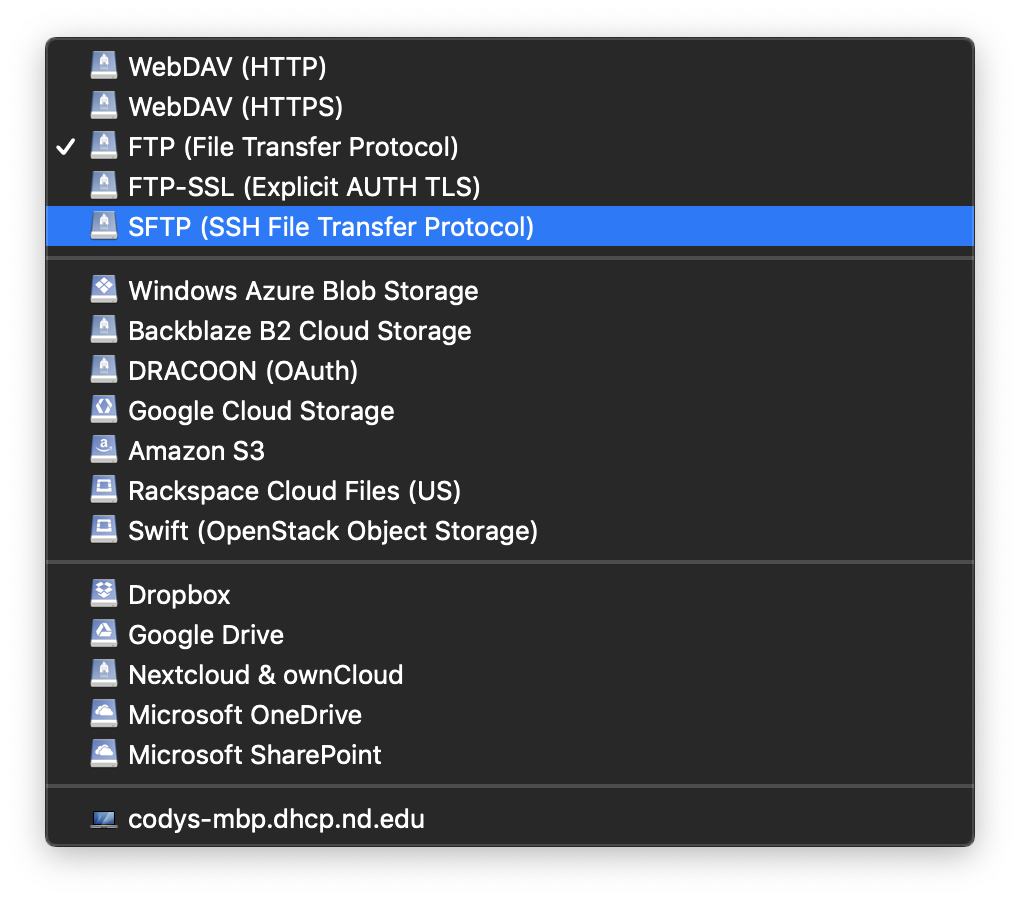


It would be helpful if CyberDuck supported the Prox圜ommand ssh config option, or at least would explain their position on the matter, in any case (I.e. redundant ssh encryption of the I/O streams). The downside of this workaround might be an avoidable performance hit (e.g. to localhost:), and whalla - CyberDuck now has access to a host on the VPN. Change the permissions of the key file to 600: Replace /Users. Copy the key’s contents, paste it in an empty file on your computer and save it. Then under Manage SSH Keys, go to the kebab menu > Private Key. Once a tunnel is running that bridges the Mac to a host on VPN via the the VPN-connected remote host (lets call it the proxy), I connect with Cyberduck running on the mac to the tunnel port on same mac Cyberduck running on (e.g. To establish an SFTP connection to your website, first go to your Site Tools > Devs > SSH Keys Manager and generate a new SSH key pair. (many examples of setting up that kind of tunnel, online).
#Cyberduck sftp software#
WORKAROUND: I set up an ssh tunnel daemon using the Mac "SSH Tunnel" app (paid app) from the App Store, using the app as convenient way to track and manage tunnels (in my case, all one of them), but no magic there, it's just uses ssh -L. NOTE: If you require an older version of Fetch software (for Intel Macs on macOS 10.5 - 10.14), please contact the IT Assistance Center. But I found the Prox圜ommand setting that works perfectly with BBEdit's SFTP infrastructure, doesn't work with Cyberduck. Specifically, I wanted CyberDuck on my Mac to have access to hosts on a VPN that only a remote (but locally accessible) host had access to. I found myself desperately needing to access a VPN that was connected to on a remote host, from my localhost (Mac).


 0 kommentar(er)
0 kommentar(er)
